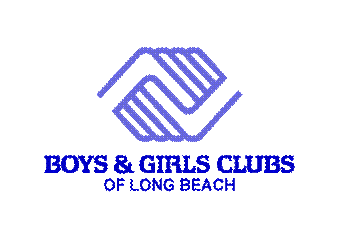- Education Topics
- Achievement Gap
- Alternative Education
- American Education Awards
- Assessment & Evaluation
- Education during COVID-19
- Education Economics
- Education Environment
- Education in the United States during COVID-19
- Education Issues
- Education Policy
- Education Psychology
- Education Scandals and Controversies
- Education Reform
- Education Theory
- Education Worldwide
- Educational Leadership
- Educational Philosophy
- Educational Research
- Educational Technology
- Federal Education Legislation
- Higher Education Worldwide
- Homeless Education
- Homeschooling in the United States
- Migrant Education
- Neglected/Deliquent Students
- Pedagogy
- Sociology of Education
- Special Needs
- National Directories
- After School Programs
- Alternative Schools
- The Arts
- At-Risk Students
- Camps
- Camp Services
- Colleges & Universities
- Counties
- Driving Schools
- Educational Businesses
- Financial Aid
- Higher Education
- International Programs
- Jewish Community Centers
- K-12 Schools
- Language Studies
- Libraries
- Organizations
- Preschools
- Professional Development
- Prom Services
- School Assemblies
- School Districts
- School Field Trips
- School Health
- School Supplies
- School Travel
- School Vendors
- Schools Worldwide
- Special Education
- Special Needs
- Study Abroad
- Teaching Abroad
- Volunteer Programs
- Youth Sports
- For Schools
- Academic Standards
- Assembly Programs
- Blue Ribbon Schools Program
- Educational Accreditation
- Educational Television Channels
- Education in the United States
- History of Education in the United States
- Reading Education in the U.S.
- School Grades
- School Meal Programs
- School Types
- School Uniforms
- Special Education in the United States
- Systems of Formal Education
- U.S. Education Legislation
- For Teachers
- Academic Dishonesty
- Childcare State Licensing Requirements
- Classroom Management
- Education Subjects
- Educational Practices
- Interdisciplinary Teaching
- Job and Interview Tips
- Lesson Plans | Grades
- Professional Development
- State Curriculum Standards
- Substitute Teaching
- Teacher Salary
- Teacher Training Programs
- Teaching Methods
- Training and Certification
- For Students
- Academic Competitions
- Admissions Testing
- At-Risk Students
- Career Planning
- College Admissions
- Drivers License
- Educational Programs
- Educational Television
- High School Dropouts
- Higher Education
- School Health
- Senior Proms
- Sex Education
- Standardized Testing
- Student Financial Aid
- Student Television Stations
- Summer Learning Loss
Boys & Girls Clubs of Long Beach

Basic Information
Address: 3635 Long Beach Blvd.
Long Beach, CA 90807
Phone Number: 562-595-5945
Fax Number: 562-595-5745
Email: Karenr@bgclublb.org
Director: Don Rodriguez
Additional Information
Causes Served: Provide after school programs in Education, Health, Character, Leadership, Athletics, Arts, and Social Recreation
Clearances Required: Yes
Background Check: Yes
Population Served: Youth ages 6 to 18
Ages for Volunteer: Minimum age of 12
Hours of Service: 3:00 - 6:00 p.m.
Minimum Hours Required: 1 hour per week
Days of Service: Monday - Friday, occasional Saturdays
Mission Statement:
Boys & Girls Clubs of Long Beach provide a safe and nurturing environment where youth from ages 6 to 18 are encouraged to become responsible citizens
Philosophy/Belief Statement:
All youth deserve the opportunity to acquire the skills to become successful adults by developing:
A sense of belonging
A sense of usefulness
A sense of accomplishment
and a sense of power or influence
Program History:
Boys & Girls Clubs of Long Beach was started in 1939 by community volunteers, Carlton Wallace, Maurice Bugbee, and Judge Fred Smith. Incorporated as a nonprofit in 1943 as the Boys Club, girls were added In the 1990's. Today, 11 Club locations serve 5,800 youth per year.
Events:
Annual Day for Kids in September, Halloween Parties in October, Thanksgiving Dinner in November, Holiday Parties in December, Martin Luther King, Jr. Celebration in January, Valentine's Dances in February. Extended day programs are offered during summer, spring and winter breaks. Field trips are taken to a variety of educational and sporting events and venues.
Additional Information:
All volunteers who work directly with children on an ongoing basis must be fingerprinted and undergo a criminal background check. A membership costs $15 per year. All youth are offered a chance to go to summer camp for one week at a very nominal charge.
Need tutors, mentors, and literacy volunteers as well as athletic coaches, technology support, and craft volunteers.


